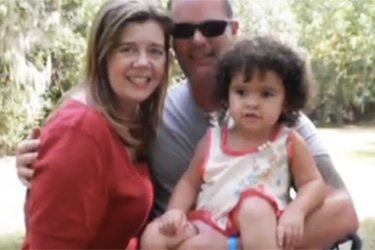‘Baby Veronica’ Handed Over to Adoptive Parents
On Monday, the Oklahoma Supreme Court paved the way for the adoption of a 4-year-old Cherokee girl to a non-Native South Carolina couple.

On Monday, the Oklahoma Supreme Court lifted the emergency stay in the custody dispute over a 4-year-old Cherokee girl known publicly as Baby Veronica, effectively giving her adoptive, non-Native parents custody and possibly bringing to a close a legal battle that has spanned years and raised questions about the adoption of Native American children by non-Native Americans and the role of the Indian Child Welfare Act.
As reported by CBS News, once the order was lifted Veronica was handed over to Matt and Melanie Capobianco, a South Carolina couple that has been trying to adopt the child since her birth. The Capobiancos had been in settlement negotiations with Dusten Brown, Veronica’s father, but according to reports those negotiations broke down. As a result, the dispute went back to the Oklahoma Supreme Court, which determined it did not have any jurisdiction over the child and dissolved the order that had kept her in the state with Brown.
The Oklahoma Supreme Court had issued an emergency stay after a South Carolina court ordered Brown to hand over the child to the Capobiancos. Brown and the Cherokee Nation argued there were irregularities in the adoption process, that it was undertaken without his full consent, and that the South Carolina court had failed to consider whether keeping Veronica with her biological father, a member of the Cherokee Nation, was in the child’s best interests.
After the stay was lifted and the child transferred to the Capobiancos, the National Indian Child Welfare Association issued a statement criticizing the decision. “The legal system has failed this child and American Indians as well. Our prayers are with everyone concerned, but most of all with Veronica,” said Terry Cross, the group’s executive director.
Although the Oklahoma Supreme Court has bowed out of the case and custody has been effectively transferred to the Capobiancos, Brown still faces extradition to South Carolina on a felony charge of custodial interference for originally refusing to deliver custody at the direction of the South Carolina court.
